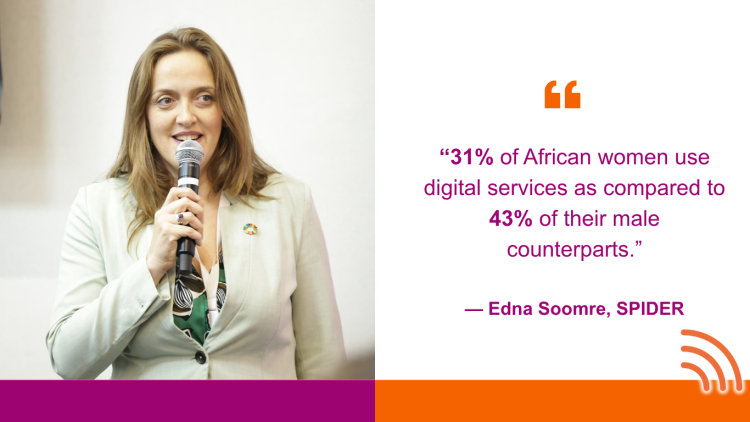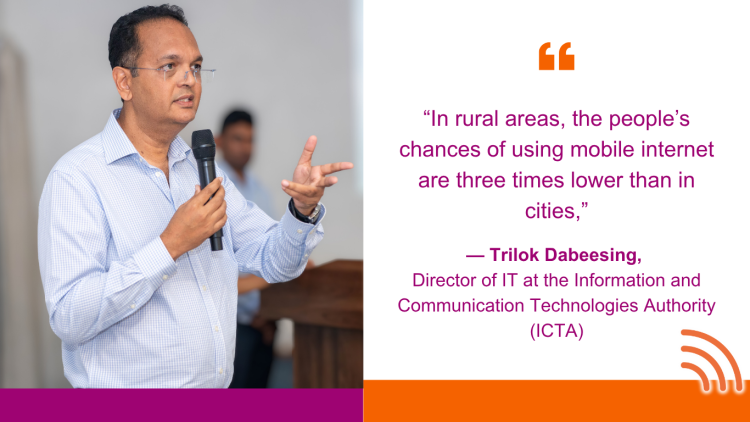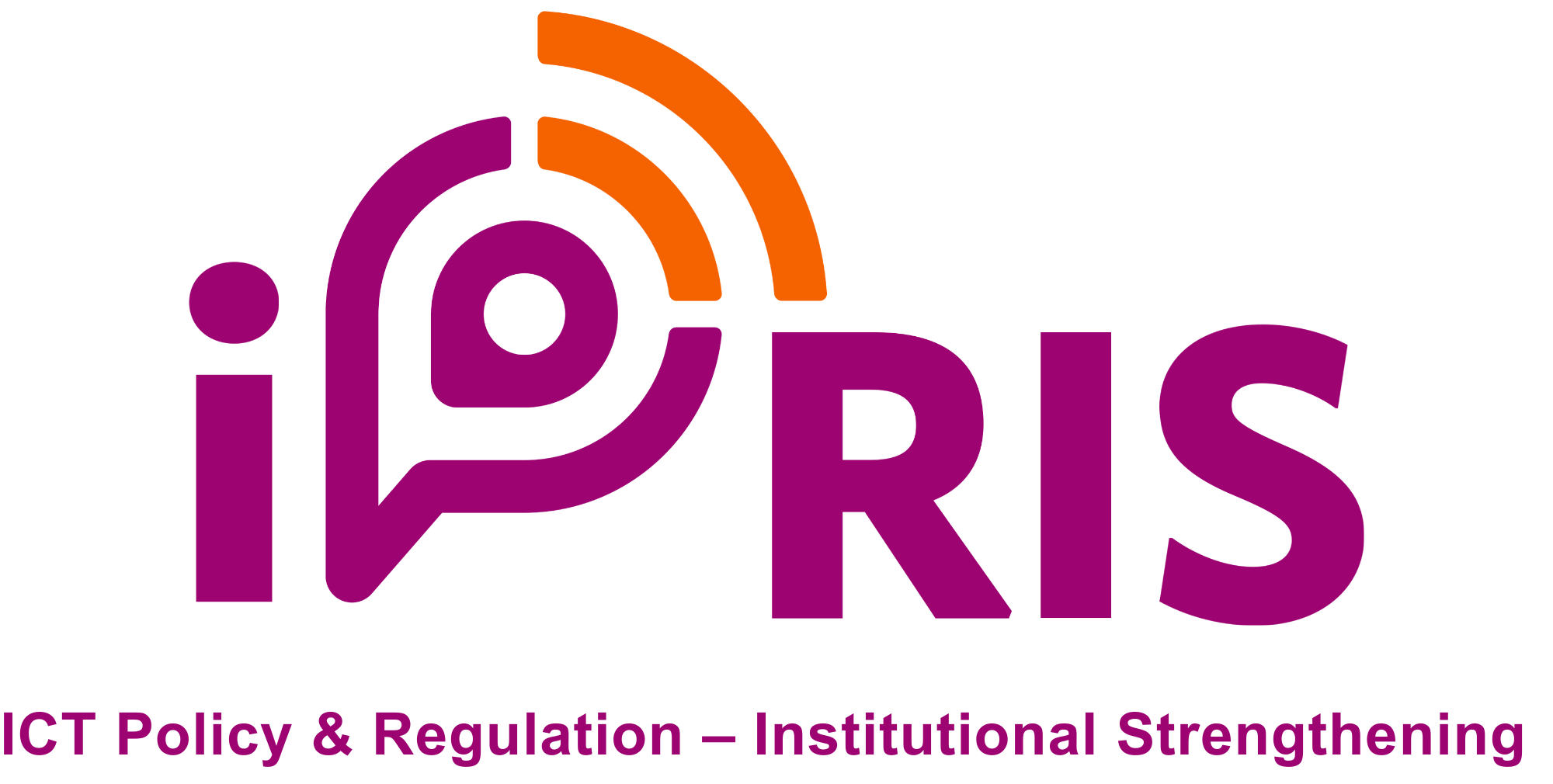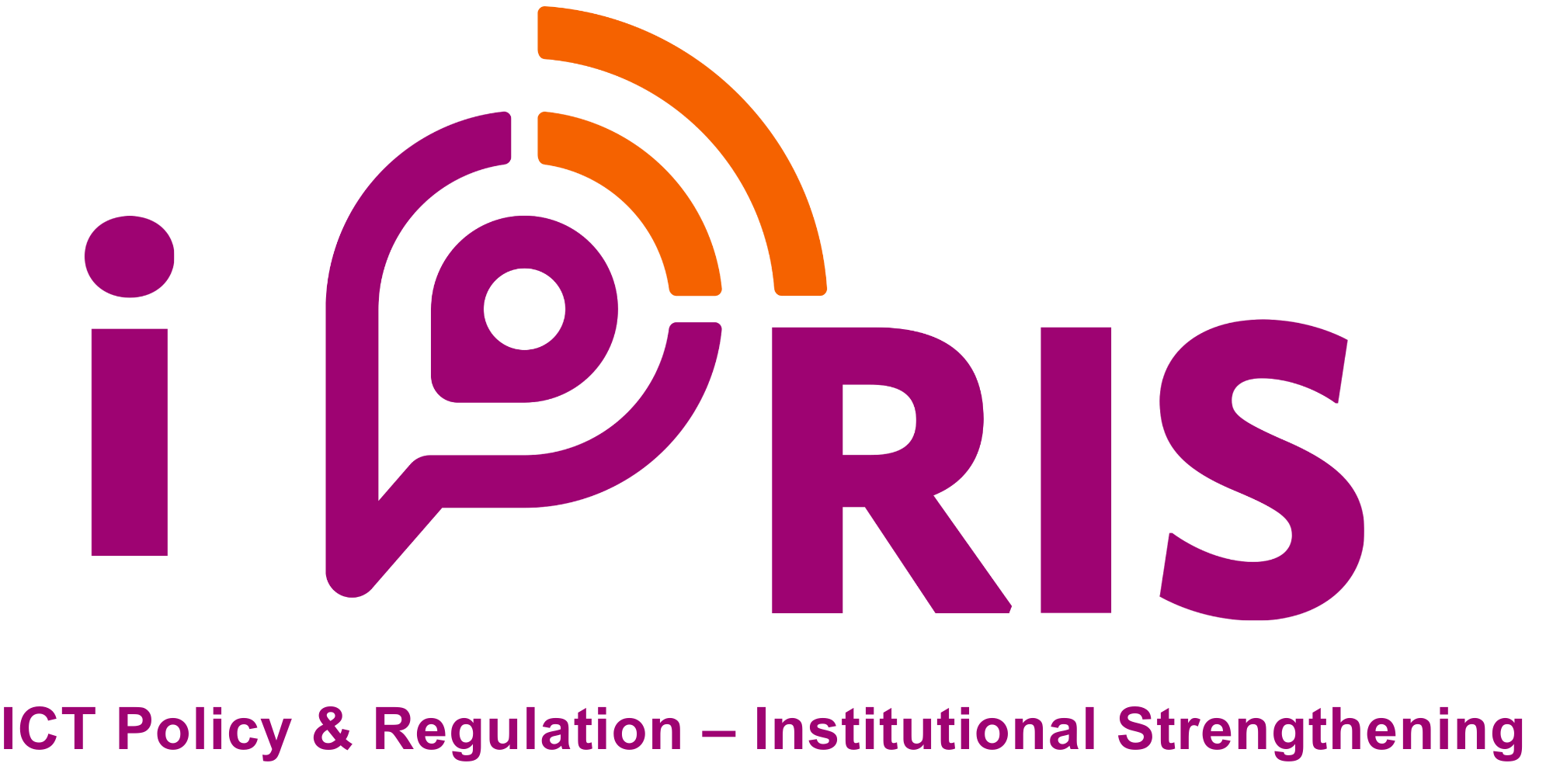The African continent’s digital transformation journey was the subject of a high-profile debate at CNBC Africa where two of iPRIS’ voices were featured. With Edna Soomre, Head of Partnerships, Innovation and Digital Health at SPIDER, Project Lead for iPRIS and Trilok Dabeesing, Director of Information Technology at the Information and Communication Technologies Authority (ICTA) in Mauritius, the two connected in a discussion that was enlightening and insightful. The conversation reinforced the point that Africa has a digital future full of challenges and opportunities, and iPRIS is a main player in the change that is taking place.
Africa’s ICT moment: Progress with persistent gaps
Soomre pointed out that Africa is pulling up its weight as a digital leader, with the investment of the regulators and regional players in the ICT sector’s transformation being the driving factor. Still, a large pool of nearly 60% of the Africans are disconnected, although the places where they live are close to the infrastructure. “What we see is a lack of trust in services, gaps in women’s access and affordability challenges,” she asserted, citing the fact that only 31% of African women use digital services as compared to 43% of their male counterparts. Partnerships are a must for Soomre: inclusion should not be left to the regulators alone; it should also involve international development actors, private sector partners, and the communities.

Mauritius as a case study: Lessons for the continent
Dabeesing from Mauritius discussed the country's highlights, including a mobile penetration rate of over 170%, effective e-government services, and its efforts to tap into fintech and digital trade. However, he noted that the African story has room for improvement. “In rural areas, the people’s chances of using mobile internet are three times lower than in cities,” he elaborated. The high cost of data is a significant factor that hinders the penetration of the Internet in Africa. It is estimated that the cost of 1 GB of data in Africa is approximately 3% of the user’s monthly salary, while the UN’s threshold is 2%. The situation with electricity is bleak, as 600 million Africans are still not connected to the electricity supply, which is a major hurdle to the uptake of ICTs.
Dabeesing stressed the impact of the iPRIS project: “The major upside of iPRIS is that it gives the regulators and the policy-makers not only the technical know-how but also the tools for ensuring diversity, equity, and inclusion, thus making the digital transformation process fair and affordable.”

iPRIS as the primary driver of change
iPRIS is funded by the European Union, Sweden, and Luxembourg, and is reinforcing regulatory capacity in 43 countries in Sub-Saharan Africa with assistance from four African regional regulatory organisations (RROs). This program addresses various challenges through the National Regulatory Authorities’ (NRA) Change Initiatives, including affordability, digital illiteracy, and infrastructure gaps. Some of the activities in the Sub-Saharan region are strengthening the cybersecurity frameworks in Mauritius and advancing the possibilities of satellite connectivity in Tanzania.
Soomre pointed out the economic potential: “If communities living next to the border are afraid of roaming fees or do not trust the services, they will not be able to trade or do business. It is through regulatory innovation and cross-border cooperation that these opportunities will be unlocked.”
Youth and the digital economy
The people of Africa are its greatest asset, with the youth comprising the most significant part of the population, at almost 60%. The Youth are the very focus of the African Union’s Digital Transformation Strategy (2020-2030), and the IFC/Google report that Africa’s internet economy will grow to USD 180 billion by 2025 is a testimony to the youth being the key driver of the continent's growth.
To harness the digital potential of Africa, regulators will have to teach the public how to make the best use of technology, create an environment that is suitable for digital trade and steer the national plans in the direction of the continental strategies such as the African Continental Free Trade Area (AfCFTA) treaty.
The role of regulators in the future
The two speakers emphasised that the growth of the digital sector, which is accessible to all, cannot be achieved in isolation. RROs, such as ARTAC, EACO, WATRA, and CRASA, would need to closely collaborate with government ministries, academic institutions and the private sector.
“Through dialogue, we can together mobilise the youth into jobs, create new opportunities and minimise redundancy,” Soomre stressed.
This CNBC Africa interview pointed out both the advantages and the obstacles of Africa's digital future. iPRIS is advancing the digital advancement agenda in Sub-Saharan Africa by stressing inclusivity, trust, and understanding. These foundations will help connect underserved areas and nurture emerging digital ecosystems. Dabeesing stated that the digital transformation of Africa is in progress, but making it fair, inclusive, and sustainable will be the task of a united force consisting of regulators, policymakers, and partners that are working together in tandem.
Watch the full interview here: Driving investment in Africa’s ICT sector - CNBC Africa
iPRIS is coordinated and implemented by SPIDER in strategic and technical partnership with the Swedish Post and Telecom Authority (PTS) and Institut luxembourgeois de régulation (ILR), as well as ARTAC, CRASA, EACO, and WATRA.
iPRIS is funded by the European Union, Sweden, and Luxembourg as part of the Team Europe Initiative “D4D for Digital Economy and Society in Sub-Saharan Africa” (Code: 001).






